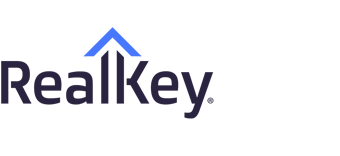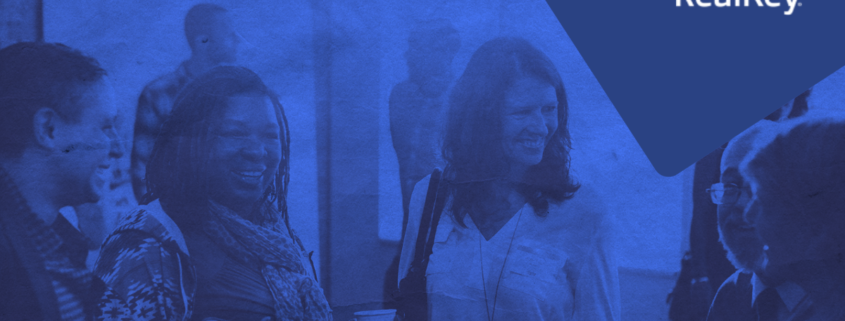Misogyny in Mortgage Lending Is Still A Thing And It Must Stop
Summary:
- March is Women’s History Month and it‘s aim is to emphasize historical achievements of women.
- While many industries are tackling sexism and misogyny against women, the mortgage lending industry is trailing behind.
- As lending institutions are implementing no-tolerance policies, misogyny gets camouflaged as competition and is fueled by toxic bro culture.
- Although the number of women working in the lending industry is increasing, many are still working in the behind-the-scenes processing and underwriting roles.
- Accountability and providing safe space to voice concerns are some of the ways of ending sexism.
Since the 1980s, March has been recognized as Women’s History Month in the United States. Women’s participation, which has always been a part of history, has been overlooked and excluded for centuries. Historically, the past has been shaped and seen through the lens of the great male heroes. But in the early 20th century, the narrative began to change with the introduction of women’s history in academia. This pushed to emphasize the importance and achievements of women, as well as to provide them with equal access to jobs and education.
When we fast forward to today, organizations are discussing how to tackle gender bias, discrimination and sexist attitudes in the workplace. Additionally, the MeToo movement has started outing inappropriate behavior in the workplace across many industries, and demanding accountability. While large leaps have been made towards women’s inclusion and equality, industries such as mortgage lending are still trailing behind and exhibiting misogynistic and sexist behavior.
As organizations are implementing tougher protocols and no-tolerance policies against sexism and misogyny against women, the lending industry continues to be in the spotlight. High-ranking and everyday scandals get dismissed with a slap on the wrist, and go unpunished. While some industry professionals are brave enough to take a stance and distance themselves from shamed leaders and organizations, many sweep it under the rug and continue with the “business as usual” mentality.
“Boys will be boys” can no longer be used as a justification for outbursts and tantrums. They are not examples of innocent mistakes, but rather that of “bro” culture, bully tactics and toxic masculinity camouflaged as professionalism and doing whatever it takes to win and close a loan. Helping borrowers buy a home should not be done at the expense of defaming women (or anyone) in or outside of the industry. This behavior shows lack of respect, and essentially undermines support of ALL women who are someone’s wife, mother, or daughter.
Even though today there are more women in the lending industry, many of them still feel that mortgage lending remains a male-dominated industry with a toxic culture. Some of the women that work alongside men as loan originators express that in order to “fit in” they must become “one of the boys,” meaning that they have to accept and not react to inappropriately sexist jokes, comments and bullying.
In the home lending office, it’s more common to see women employed in supporting roles like loan assistant or in back-office roles such as processor and underwriter. These positions are oftentimes overlooked, overworked, and underpaid. While mortgage originators razzle-dazzle borrowers to sign up for a loan product and get the financial recognition for when the loan finally closes, what many borrowers don’t see is the behind-the-scenes team that cleans up messes and puts out fires to make the loan approval actually happen and fast.
Although mortgage lending is still considered a male-dominated industry, the dynamics are shifting and women are playing a larger part. Changes in borrower demographics as well as theories about how women could be better loan officers are just some of the reasons for why we see more women transitioning to client-facing mortgage broker roles and into leadership positions. A standout example is JMAC Lending which was founded by 2 sisters and has a majority female leadership team. Since 2007, JMAC has originated more than 40,000 mortgage loans and is one of 30 largest wholesale lenders in the industry.
Today, the borrower profile is changing as well. (Single) female home buyers have become more normal and accounted for almost 20% of home purchases in 2019 with that number expected to increase. And although women make $0.81 to every $1.00 that men earn, single women own more than 1.6 million homes than single men in the US. To serve a growing female customer base, the mortgage industry would benefit from more female loan officers.
How to promote inclusivity and eliminate misogyny and discrimination:
- Accountability–the industry MUST react swiftly, make itself accountable and hold misogynists accountable (including firing) from all ranks, top to bottom.
- Collaborations–facilitate partnerships with industry allies that are examples of change in the industry.
- Safe Space–provide a space where men and women feel safe, comfortable and protected to voice negative experiences without consequences of losing their job or commission.
- Allies–men should act as allies and call out vile behavior.
- Clear Company Policy–organizations must have policies against gender inequality and code of ethics guidelines applying to anyone in the ranks.
- Equal Access–female employees must have fair and equal access for career opportunities.
Sexism, discrimination and mysoginy in the lending industry exists because of weak leadership and lack of acknowledgement or accountability. While many males in executive leadership roles don’t exhibit the mentioned behaviors, they fail to make the necessary changes to eliminate them. It’s easier to look the other way than weed out the “bad apples”.
Oftentimes, there is a tendency to downplay, or altogether ignore, the impact and severity of sexism in the workplace. However, just like in every relationship, there is a huge difference between a healthy (gender) dynamics versus blatant hostility and discrimination. Eliminating misogyny not only benefits women and makes a company HR-compliant, but it makes organizations more successful overall. Company culture and historical industry stereotypes can no longer be used as an excuse for behavior that diminishes and materially disadvantages anyone.
At RealKey, we understand the challenges that loan originator teams face in the loan process. We conducted extensive studies to pinpoint the most common pain-points of closing a loan. In keeping with the focus of this post, we found that processors and underwriters manage the bulk of the closing process, and rely on outdated and non-intuitive tools. While mortgage originators are bombarded with and invest in new and efficient technologies to find new borrowers, complete online applications, and even release their commissions sooner, the back-office support team are commonly overlooked.
RealKey’s digital mortgage platform is one of the steps towards equality in the mortgage industry by promoting investment into roles and divisions of the loan ecosystems where women (and men) are working the hardest. This won’t only have a positive impact for loan originators and their team, but the entire organization.
RealKey’s AI improves on current processes and systems for initial needs lists, to get the right conditions the first time, inviting not only borrowers, but 3rd parties to the centralized platform. RealKey provides centralized chat, which reduces the amount of time and frustration spent by processors communicating through inefficient emails or attempting to get through to everyone involved by phone (often getting full voicemails or likewise being hard to reach themselves due to being inundated with tasks of their own). Review of documents is automated by RealKey’s AI to suggest re-conditions when the uploader did not follow the clear instructions, or new conditions based on the data/documents provided. To reduce back and forth with underwriting that adds stress for everyone, underwriters can clearly see what has been provided as well as what is still being worked on to get cleaner approvals out sooner. This all leads to preferred underwriting (wanting MLOs files over others) and better pricing in most cases. Not to mention RealKey has been proven to improve the likelihood of borrowers refinancing or referring business to the same MLO by 50%. Investing in all of your staff and their division, not just sales, is for everyone’s benefit.
Contact us today for a demo, and learn how RealKey can help automate the most difficult loan-closing processes.


